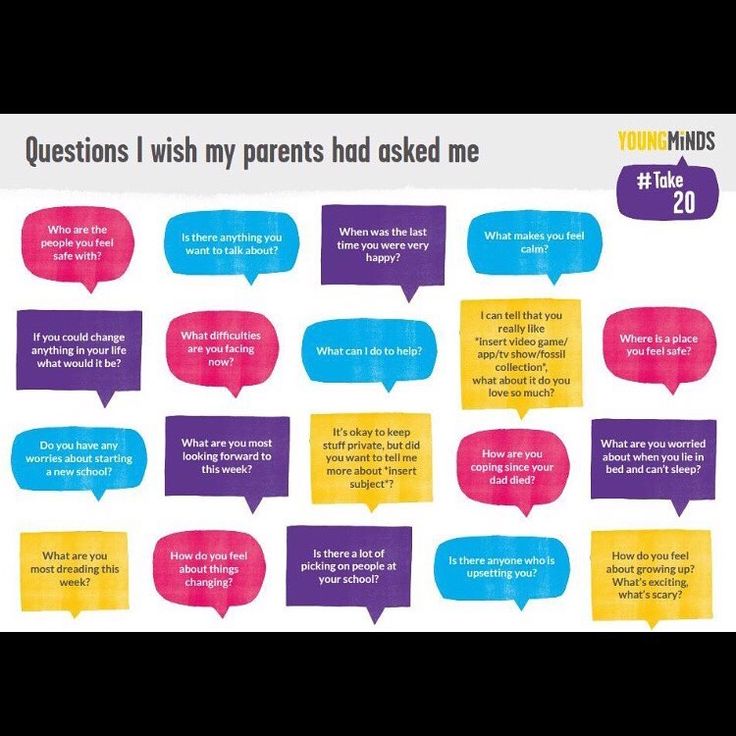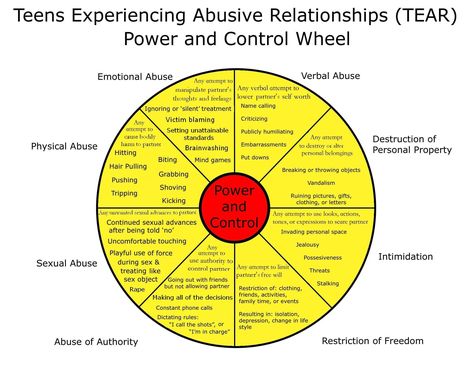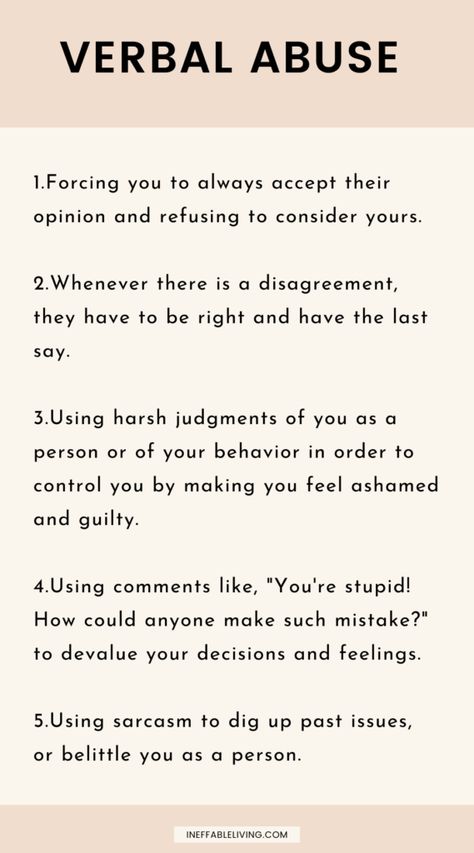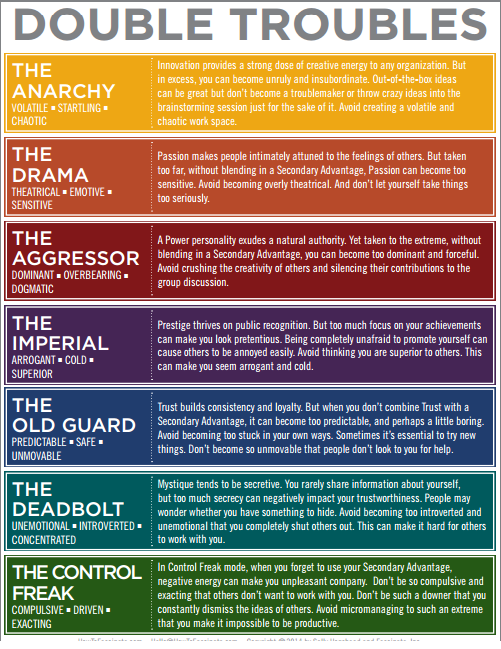Friendships of women
Why They're Key to Every Part of Your Well-Being
My female friendships have come a long way. In my youth, I was always the “guy’s girl”— as in “friends” with a bunch of guys and “acquaintances” with women. Looking back, I can now see why. Being friends with the dudes meant that I could keep a distance that didn’t require vulnerability–or competition. The boys never asked too many questions, and we tended to keep things light. I was the ultimate wing woman, free to make mistakes without the judgment of another women’s view of who I should be. In full honesty, I wasn’t exactly sure who I was or what I wanted to be, so this all felt like a safe space.
Fast forward to late adulthood and I could’t imagine my life without my girls. It’s easier now that I’m sure of who I am and what I stand for. To be fair, it’s probably inevitable that I would come to this place with a gang of girls. But I didn’t know until later in life all the power and strength that lies within female friendships.
From how to navigate my career in a man’s world to sharing the joys and fears of motherhood—it’s all there. My female friendships lift and fill me up in a way my friendship with men cannot. So, this all got me thinking: Why was I so afraid of getting close to women? What was so complex and confusing about those relationships?
While popular culture has given us female friendship gems like Lena Dunham’s Girls and Pheobe Waller-Bridge’s Fleabag, most romantic comedies include female best friends who help give context to the heroine and push her toward her love interest. The fact is, female friendship is deeply complex and overflowing with nuance, but there are also few bonds more beautiful or rewarding.
Feature image by Jenny Sathngam.
1 of 3PHOTO: Kristen Kilpatrick Photography,Target, Target Party, Camille Styles, Camille Styles Austin, Camille Styles Bungalow, Camille Styles Kristen Kilpatrick, Kristen Kilpatrick Austin, Kristen Kilpatrick Editorial, Editorial Photographer, Target Garden, Target Inspiration, Target Fashion, Target Apparel, Target Camille Styles, Target Furniture, Outdoor Furniture, Summer Parties, Summer Inspiration, Camille Styles Home, Austin TexasImage by Kristen KilpatrickWhy Female Friendships Aren’t Just a Nice-to-Have
Female friendships are essential to our health and they can even help us live longer lives. Have you ever experienced that warm, elated feeling you get after leaving dinner with your best gal pal? Platonic closeness gives us a healthy, stress-busting boost of feel-good hormones like oxytocin, dopamine, and serotonin—all vital to emotional wellbeing and physical longevity. Now more than ever, the intimacy we share with friends helps us avoid feelings of isolation, increases our sense of belonging, and helps us cope with the world around us.
Have you ever experienced that warm, elated feeling you get after leaving dinner with your best gal pal? Platonic closeness gives us a healthy, stress-busting boost of feel-good hormones like oxytocin, dopamine, and serotonin—all vital to emotional wellbeing and physical longevity. Now more than ever, the intimacy we share with friends helps us avoid feelings of isolation, increases our sense of belonging, and helps us cope with the world around us.
In a society that considers romantic relationships to be the be-all and end-all, women can find friendships elusive and difficult to maintain—especially in adulthood. With that said, it’s never too late to build new relationships with women or work on the ones we already have. Plus, knowing the many benefits of friendship is a great reason to start investing in them in a new or different way. So what’s the secret to lifelong friendships?
Keep scrolling for three tips that will help you cultivate long-lasting female friendships.
 2 of 3Image courtesy of Lizzy MathisShine Together
2 of 3Image courtesy of Lizzy MathisShine Together One of the common reasons why women feel challenged in their friendships is jealousy and competition. The reason for this is rooted in evolution, where our ancestors competed for the safety and protection of mates. In a modern and patriarchal society, women often find themselves competing for the affection and approval of men. When our value becomes wrapped up in attaining male attention, rivalries can develop. Many women can similarly relate to the feeling of bitterness when they see a friend landing a big promotion or achieving a significant milestone before them. But since our friends are a direct reflection of ourselves, shouldn’t we be genuinely celebrating and lifting them up?
This is the idea behind Aminatou Sow and Ann Friedman’s Shine Theory. It states that by consciously investing our full selves into our friendships, we can become allies instead of competitors. And when we encourage our friends to be their best selves, we also encourage ourselves. I don’t shine if you don’t shine, right? When we cultivate relationships based on mutual and unwavering support, we create the perfect conditions for long-lasting and ever-blossoming friendships.
I don’t shine if you don’t shine, right? When we cultivate relationships based on mutual and unwavering support, we create the perfect conditions for long-lasting and ever-blossoming friendships.
In a world that places a great deal of emphasis on showing strength, vulnerability can feel like a weakness, and that means it can be hard to express it even in our closest friendships. Sometimes, it’s just easier to respond with the requisite “good, you?” when our friend asks how we’re doing. But when we choose to close ourselves off in this way, we also stifle the potential for genuine connection.
The truth is, vulnerability and openness help us cultivate closeness with those we love and support a sense of belonging and safety. When we let our guards down, we give ourselves an opportunity to communicate our true selves while creating the safe space that allows our friends to share theirs. When we allow ourselves to be seen—scars and all—we’re able to develop the true intimacy necessary to create long-lasting female friendships.
We are all likely familiar with the defined stages of commitment within romantic relationships: moving in together, engagement, and marriage. Friendship, on the other hand, doesn’t have the same obvious milestones. Because of this, it can be easy to justify certain behaviors we would never accept in our significant others, like transience and inconsistency, for instance.
When we begin to see our friendships as investments, we can understand that commitment isn’t only reserved for romantic relationships. By making the conscious effort to choose our friends, we create the habit of consistency which provides us with enduring support over time. True long-lasting friendship means accepting where each of you are at all life stages, and choosing to evolve differently, but together.
How do you pour into and support your female friendships?
The Friendships of Women: The Beauty and Power of God's Plan for Us by Dee Brestin, Paperback
The Friendships of Women
The Beauty and Power of God's Plan for Us
By Dee Brestin
David C. Cook
Cook Copyright © 2008 Dee Brestin
All rights reserved.
ISBN: 978-1-4347-6576-5
CHAPTER 1
From Girlhood On, Gifted for Intimacy
When Elliot Engel watched his wife and her best friend say good-bye before a cross-country move, he found that their last hugs were so painful to witness he finally had to turn away and leave the room. He said, "I've always been amazed at the nurturing emotional support that my wife can seek and return with her close female friends.... Her three-hour talks with friends refresh and renew her far more than my three-mile jogs restore me. In our society it seems as if you've got to have a bosom to be a buddy."
The clock radio clicks on, mercifully playing "Morning Has Broken" instead of barking out today's market prices for hogs and corn in Nebraska. I shift under our electric blanket, curling my perennially icy feet against my husband's sleep-warm body. I peer out at the illuminated digits: 6:55 a.m. I hear our new puppy whimpering, eager to be lifted from her box, and the timed coffee gently brewing. Soon we will all be up, showering and dressing for work or school. But for now, I snuggle down, hoping to enjoy a few more moments of the morning's soft darkness.
I peer out at the illuminated digits: 6:55 a.m. I hear our new puppy whimpering, eager to be lifted from her box, and the timed coffee gently brewing. Soon we will all be up, showering and dressing for work or school. But for now, I snuggle down, hoping to enjoy a few more moments of the morning's soft darkness.
Reality breaks through with the piercing jangle of the telephone. My hope and covers are abandoned as I rush to still its persistent ring. I have little fear of evil tidings as I anticipate the voice of one of my daughter's fourth-grade friends. I am not disappointed.
"What is Sally wearing today?" Michelle inquires.
"She laid out jeans and her pink sweater," I answer cooperatively.
"Oh." Michelle sounds disappointed. "I was going to wear sweats. Is she bringing her lunch?"
"She's not planning to."
"But hot lunch is baked fish and beets today," Michelle argues plaintively. I ask Michelle to hang on as I discuss these vital issues with my sleepy daughter. It is decided: Sally will bring her lunch, and Michelle will wear jeans.
It is decided: Sally will bring her lunch, and Michelle will wear jeans.
Little Girls Are Closer Than Little Boys
When our sons were small, they had friends over frequently, but they seemed more absorbed in their activity than in each other. One friend, if he liked roaring up and down the driveway on Big Wheels or playing football, seemed as good as another. Never did I have an inquisition at dawn on what my son was wearing or if he was bringing his lunch.
Sally was much more likely to sit on her bed face-to-face with a friend, whispering and giggling. They were absorbed in each other. When Sally and her friend Gwen were six, they would often hold hands.
Sociologist Janet Lever indicates the differences I have noticed between our sons and daughters are typical. Girls, for example, tend to feel most comfortable with a single best friend; boys prefer to play on teams. Lever reports,
There is usually an open show of affection between little girls, both physically in the form of hand-holding and verbally through "love notes" that reaffirm how special each is to the other. Although boys are likely to have best friends as well, their friendships tend to be less intimate and expressive than girls'. Hand-holding and love notes are virtually unknown among boys, and the confidences that boys share are more likely to be "group secrets" than expressions of private thoughts and feelings.
Although boys are likely to have best friends as well, their friendships tend to be less intimate and expressive than girls'. Hand-holding and love notes are virtually unknown among boys, and the confidences that boys share are more likely to be "group secrets" than expressions of private thoughts and feelings.
Do you remember? I do.
When Donna Rosenow and I were in fifth grade, we took turns walking each other home after school, even though our homes were a mile apart. A standing joke occurred when we reached the door: "Now I'll walk you home!" Then we'd laugh and turn to walk the mile through the tree-lined streets of our small Wisconsin town. When we finally did part, our giggling and chatter resumed right after supper as we monopolized our respective telephones.
Girls are more demanding, empathetic, and confiding in their friendships than boys. They are closer. Zick Rubin, author of Children's Friendships, has noted, "Girls not only have a much stronger need for friendship than boys, but demand an intensity in those friendships that boys prefer living without. "
"
When our daughter was nine, her friend Gwen passed her the following note in school.
TO SALLY
CHEK ONE-YOU HAVE TO
Do you like me??????????
--Yes, and your my very best freind
--Your a good freind
--Sort of
--NO NOT AT ALL!!!!!!!!!!
COME ON NOW TELL THE TRUTH!!!!!
I showed Gwen's questionnaire to our eighteen-year-old son, John. I was interested in a male reaction. He read it over, brows furrowed, several times. Gwen's thinking was so foreign to him that he had trouble understanding her meaning. When he finally did, he said, "Good grief! Who cares?"
We do. As grown women we have mellowed and increased in subtlety, yet we still empathize with Gwen's questionnaire. We care about our feelings for each other.
The marketing departments of two large card companies, American Greetings and Hallmark, would appreciate Gwen's note. They've been zealously studying women for years. Their surveys have given them a preponderance of evidence that women, like little girls, care intensely about their friendships with one another. Armed with this knowledge, these card companies have developed extensive lines of friendship cards and e-cards targeted directly at women. With one of their cards I can tell another woman how much she means to me, encourage her when she's down, congratulate her on a job promotion, or sympathize with a divorce. You won't find a card line like this for men. "Men's friendship cards" would be a financial disaster.
Armed with this knowledge, these card companies have developed extensive lines of friendship cards and e-cards targeted directly at women. With one of their cards I can tell another woman how much she means to me, encourage her when she's down, congratulate her on a job promotion, or sympathize with a divorce. You won't find a card line like this for men. "Men's friendship cards" would be a financial disaster.
Affirming notes are not just for little girls. Here is a note received from Sally's friend when both were in college. Sally is still receiving affirming notes from friends, as is typical of our sex! The following note from her friend Shelli was written in five different vibrant color markers, and Sally proudly displayed it in her room. I simply cannot imagine a similar interaction between college boys!
Secret Languages
Dating back possibly as early as the third century, Chinese women developed the secret language of nushu, which literally means "woman's writing. " This language was embroidered on cloth or written in fans or books that were then passed to one another. Nushu allowed women to communicate with each other in a society where males were often abusive to females. A young woman who had been taken from her mother and her sisters to be a concubine to a cruel man wrote to them in this secret language:
" This language was embroidered on cloth or written in fans or books that were then passed to one another. Nushu allowed women to communicate with each other in a society where males were often abusive to females. A young woman who had been taken from her mother and her sisters to be a concubine to a cruel man wrote to them in this secret language:
My writing is soaked with the tears of my heart,
An invisible rebellion that no man can see.
Let our life stories become tragic art.
Oh, Mama, oh, sisters, hear me, hear me.
Women long to be heard, to be understood, to be loved. That has not changed over the centuries. Did you know that when the Internet became truly accessible to the world in the 1980s, that men were the primary users? Do you know what changed that? E-mail! When e-mail joined the World Wide Web in the late '80s, suddenly women, fueled by their drive to connect, were willing to surmount the challenges of learning the new technology. Likewise, today in the twenty-first century, young girls are texting one another like crazy through their cell phones. Julianna, one thirteen-year-old, wrote me that she gets or sends between six and ten thousand messages a month. "I have unlimited texting," she wrote, "which is good!" Text messaging uses a language of acronyms that reminds me of the secrecy of the ancient language of nushu: LOL (laugh out loud), BRB (be right back) and—as my granddaughters sign their texts to their girlfriends in their Christian school—LYLAS (love you like a sister). Though parents may become concerned when they read about acronyms like MOS (mom over shoulder) or PAW (parents are watching), I believe that the primary motivation for girls is connection, not secrecy.
Julianna, one thirteen-year-old, wrote me that she gets or sends between six and ten thousand messages a month. "I have unlimited texting," she wrote, "which is good!" Text messaging uses a language of acronyms that reminds me of the secrecy of the ancient language of nushu: LOL (laugh out loud), BRB (be right back) and—as my granddaughters sign their texts to their girlfriends in their Christian school—LYLAS (love you like a sister). Though parents may become concerned when they read about acronyms like MOS (mom over shoulder) or PAW (parents are watching), I believe that the primary motivation for girls is connection, not secrecy.
Driven to Connect
Studies show that generally speaking, the strongest drive for females is connection and the strongest drive for males is status. Attempted suicides for men often follow a loss of status: losing a job, a reputation, or a bankroll. Attempted suicides for women often follow a loss of a relationship: a suitor, a husband, or a best friend. Though it may seem surprising to husbands that their wives could be so devastated by the loss of a best woman friend, it is a frequent reality.
Though it may seem surprising to husbands that their wives could be so devastated by the loss of a best woman friend, it is a frequent reality.
One of the first "women's friendship" movies to be released was Beaches, and women made it a box-office hit. After a rift with her lifelong friend Hillary (played by Barbara Hershey), Cecilia (played by Bette Midler) tearfully asked her husband, "What will I do without a best friend?"
Trying to comfort her, he said, "You've got me."
She turned away, tears in her eyes, saying, "It's not the same."
Psychotherapist Lillian Rubin wrote, "The devastation that a woman can feel at the demise of a soul mate friendship is akin to the pain of a divorce." We'll consider how to handle that pain later, but for now, we need to acknowledge that it is real. God wired us to be relational, and the side effect to that is pain when those relationships go sour.
We may also be the ones who cause relationships to go sour by clinging too tightly. If we feel a connection is being threatened, we may resort to dark ways of preserving it. You can see it better in little girls, who lack subtlety.
If we feel a connection is being threatened, we may resort to dark ways of preserving it. You can see it better in little girls, who lack subtlety.
Little Girls Are Crueler Than Little Boys
Two little girls play well together, but when a third little girl enters the picture, it can become ugly. Little girls are territorial and know how to go straight for the jugular. Two will team up against one. "Patti and I were very popular in fifth grade, and we enjoyed the power of popularity," a forty-year-old woman reminisced. "Lynette wanted desperately to be a part of our circle. She would write notes to us asking if she could play with us at recess. Patti and I would exchange glances and then give Lynette either the thumbs-up or the thumbs-down signal."
After his first years as an elementary school teacher, a young male told me how shocked he was by his inside look at the world of sugar and spice: "I have problems on the playground with boys and girls—but they're so very different in character. The problems with boys are competitive ones, involving a disagreement over rules or fair play. I step in, referee, and basically it's over. The disagreements between the girls, however, become intensely personal. Two girls who were arm-in-arm the day before amaze me by suddenly turning on each other and screeching cruel and revealing insults in the earshot of all. Give me the problems with boys any day!"
The problems with boys are competitive ones, involving a disagreement over rules or fair play. I step in, referee, and basically it's over. The disagreements between the girls, however, become intensely personal. Two girls who were arm-in-arm the day before amaze me by suddenly turning on each other and screeching cruel and revealing insults in the earshot of all. Give me the problems with boys any day!"
Girls have a tendency, more than boys, to draw a close intimate circle and leave others out, hurting them deeply.
I'll show you the dark side of our gift for intimacy in chapter 3 as we consider the world of young girls, college girls, and sometimes even Christian women. We've become more discreet than we were as children: We choose gossip and betrayal over screeching on the playground. When one successful career woman heard I was writing a book on friendship and women, she said with deep cynicism, "Those two words don't go together." Some women have been so wounded by other women that they no longer pursue friendship with their own sex.
Our depravity is deep, our needs for attachment are strong, and we need God's wisdom and power to overcome unhealthy patterns. But in Christ we can overcome the pain, break the chains, and unleash a gift that will bless not only us, but also generations to come.
Overcoming the Challenge of Mobility
Other women have withdrawn because they no longer want to endure the pain of parting—and parting is increasingly common in our times. Becky expressed it like this: "Every time I get close to a woman, she either moves away or gets a job. I feel betrayed."
When Kathleen moved from Virginia to Ohio, she told herself, This is it. I'm not making any friends because it's too painful when we leave. "And that year," she commented later, "was the worst year of my life." Mobility is a challenge for our friendships, but pulling in like a turtle is not the answer. Your life will be cold, dark, and lonely.
Some friendships are just for a season, like annual flowers. Yet pansies and petunias have value, even though they probably will fade away and not come back. Gardens are delightfully brightened by annuals, if only temporarily, and when those flowers fade, different annuals then have room to grow. There is value in having "annuals" in our lives—and it is good that God prunes them out occasionally, for we are limited in our capacity for friendships. Yes—there might be pain in accepting that the one you thought was in your life forever was just an "annual," but we need to learn to simply be thankful for what God gives, and to accept what He takes away.
Yet pansies and petunias have value, even though they probably will fade away and not come back. Gardens are delightfully brightened by annuals, if only temporarily, and when those flowers fade, different annuals then have room to grow. There is value in having "annuals" in our lives—and it is good that God prunes them out occasionally, for we are limited in our capacity for friendships. Yes—there might be pain in accepting that the one you thought was in your life forever was just an "annual," but we need to learn to simply be thankful for what God gives, and to accept what He takes away.
Sometimes the one you thought was there just "for a season" turns out to be a "perennial," loving you well year after year. Or, she may disappear for years, except for the Christmas card, and then be back, strong and lovely, flourishing in your friendship garden again. Two women whom I loved dearly as a young woman pretty much disappeared from my life when I moved away. There was no rift—we simply drifted apart over the ocean of miles. But when my husband, Steve, died thirty years later and I was missing his spiritual sharpening so much, I immediately thought of Ann and Sylvia—and how they also had been that for me. I wrote them, invited them to my cabin, and they came! We are now seeing each other at least yearly and connecting regularly through e-mail and phone calls. They are back in my garden, and I intend to be more diligent in caring for these lovely flowers.
But when my husband, Steve, died thirty years later and I was missing his spiritual sharpening so much, I immediately thought of Ann and Sylvia—and how they also had been that for me. I wrote them, invited them to my cabin, and they came! We are now seeing each other at least yearly and connecting regularly through e-mail and phone calls. They are back in my garden, and I intend to be more diligent in caring for these lovely flowers.
Distance can end friendship, but that formidable mountain has been reduced by cyberspace. Many missionaries wrote me, thanking God for e-mail, like Miranda: "I used to feel so isolated here in Zimbabwe, missing my friends and family in South Carolina terribly. But now, with e-mail, there really is a connection across the ocean. I can bear my heart about a problem I'm facing and wake up to receive a fervent prayer back in response from my dear friend or sister."
In the past it wouldn't have been likely to find a long-distance friend, but today, because of cyberspace, it's happening. Just as the Christian dating service eHarmony is pairing up some particularly compatible couples, cyberspace can help us find compatible friendships as well. Phyllis Stone wrote to me of the particular loneliness of being a pastor's wife, and how God met her needs with a friend she found through the Internet:
Just as the Christian dating service eHarmony is pairing up some particularly compatible couples, cyberspace can help us find compatible friendships as well. Phyllis Stone wrote to me of the particular loneliness of being a pastor's wife, and how God met her needs with a friend she found through the Internet:
Being a pastor's wife can be a very lonely position. Some women in the church who tried to become friends with me were only using me to get something from my husband. It's easy for pastors' wives to be manipulated and intimidated by the very people they are trying to serve.
I found Mary on a Christian pen pal site after posting a short blurb. It wasn't long before we found how much we had in common: we both love to write, work in social work, have husbands named Tom, have children who are high academic achievers, have a parent in a nursing home—and more. It has been five years and Mary has become my closest friend. We are soul mates! We e-mail at least twice per day and share everything from spiritual matters to what we're cooking for dinner! She lives in New York and I live in Kentucky. Since our friendship began, she has flown here several times and I have flown to visit with her and her family. She is now part of my family and I don't know what I would have done the past five years without her!
Since our friendship began, she has flown here several times and I have flown to visit with her and her family. She is now part of my family and I don't know what I would have done the past five years without her!
"The miles," Phyllis says, "have enriched our friendship because it has forced us to share our hearts through writing." In centuries past, letters between women friends sounded like love letters, so free they were to express their hearts. This expression has resurged in cyberspace. Though an e-mail isn't as elegant as a wax-sealed letter on parchment, it does have worth, and can be printed off and saved if valued intensely by the recipient. Phyllis did that and put some of their best letters, along with photos, into a "friendship" scrapbook she made for Mary. (It is women who scrapbook—longing to preserve the loveliness of relationships.) On the first page of her scrapbook for Mary, Phyllis wrote,
Secret gardens still exist and what comfort they bring to weary souls who long to stop and rest for a while. True friends always seem to find their way through the vines and into the secret places of our hearts ... and there they always remain. While some women create secret gardens, there are those of us who have built stoic libraries seasoned with the smell of mahogany wood and graced with books galore. True friends always seem to keep searching, knocking on the wooden panels, looking for the secret room hidden behind the library wall. And when the door swings open, and the heart is revealed, they are forever welcomed in the sweetest of fellowship.
True friends always seem to find their way through the vines and into the secret places of our hearts ... and there they always remain. While some women create secret gardens, there are those of us who have built stoic libraries seasoned with the smell of mahogany wood and graced with books galore. True friends always seem to keep searching, knocking on the wooden panels, looking for the secret room hidden behind the library wall. And when the door swings open, and the heart is revealed, they are forever welcomed in the sweetest of fellowship.
(Continues...)
Excerpted from The Friendships of Women by Dee Brestin. Copyright © 2008 Dee Brestin. Excerpted by permission of David C. Cook.
All rights reserved. No part of this excerpt may be reproduced or reprinted without permission in writing from the publisher.
Excerpts are provided by Dial-A-Book Inc. solely for the personal use of visitors to this web site.
Female friendship: does it happen or not
Published:
Is there female friendship? Many are ready to tell stories about female envy and betrayal. Star examples of Jennifer Aniston and Courteney Cox, Drew Barrymore and Cameron Diaz prove that women can and do make friends. Experienced psychologists in the field of relationships know what female friendship is built on and what can threaten it.
What is female friendship and does it exist
We call friendship relationships between people based on similar interests, trust, disinterestedness, help, support. These relationships are different - strong and not very, sincere or selfish. They are based on different moral principles.
These relationships are different - strong and not very, sincere or selfish. They are based on different moral principles.
When they talk about male friendship, they mean mutual assistance, help, support. Women's friendship is mostly spoken of sarcastically and is skeptical about this phenomenon. This is because relationships between women are complex, diverse, it is difficult to reduce them to one type:
- women can make friends for a short time in some situation, or they can communicate for decades;
- deep, sincere, trusting relationships are established with someone, easy, friendly with others.
It happened historically, because:
- Men united to do work, such as hunting, carrying prey.
- Women in a large group remained near the fire.
This is how the need for constant communication was formed. It still exists.
Psychologist N. A. Vedmesh explains that the peculiarities of female friendship are determined initially by what distinguishes the female psyche from the male: some inconstancy, increased emotionality. For women, talk is more important than action. The purpose of their conversations is to share their emotional state, to find a response and understanding, sympathy.
For women, talk is more important than action. The purpose of their conversations is to share their emotional state, to find a response and understanding, sympathy.
Men, if they share their problems with friends, then with a different goal - to find a solution and a way out of the situation. It is important for women to discuss the problem in detail, and not to look for solutions. Therefore, to men, their conversations seem empty chatter.
Peculiarities of female friendship: FreepickAnother peculiarity of female relationships perplexes men. Women can be angry with their friends as much as they like, be amazed at their optionality or inattention, be indignant at something in their behavior, but all the same, in difficult times, they will run to them to cry in a vest, because, in their opinion, only girlfriends will find understanding of their emotional state. Men, on the other hand, are uncompromising in relationships with friends.
Due to the peculiarities of the female psyche, there are more obstacles in their friendly relations than between men. The reason is the same - they are guided by feelings and emotions, which the intellect has little control over. Therefore, female friendship is influenced by such phenomena:
The reason is the same - they are guided by feelings and emotions, which the intellect has little control over. Therefore, female friendship is influenced by such phenomena:
- Envy. Psychologist Lilia Sheleg emphasizes that this feeling is based on the instinct of survival and care for offspring, since every woman seeks to create the best conditions for her children. For hundreds of years, this rivalry has not disappeared; it arises for a variety of reasons. They envy the best clothes, apartment, work, etc. This does not prevent women from remaining on friendly terms, having sincere conversations.
- Deep knowledge of a person. Women know almost everything about their friends, so they have no illusions about each other. Not everyone can withstand the test of such knowledge about each other: contradictions appear, their own ideas and beliefs about what a girlfriend should be.
 Therefore, female friendship can go from acquaintance to enmity in a couple of months.
Therefore, female friendship can go from acquaintance to enmity in a couple of months. - If envy is added to such a deep knowledge of a friend, then betrayal, a stab in the back is possible. Women can insidiously use knowledge against former girlfriends.
However, the stories of stars prove that women are able to cope with their feelings. For example, Jennifer Aniston and Courteney Cox starred in the popular series Friends for ten years and became friends in real life. Their careers have developed in different ways: Aniston became a Hollywood celebrity, and Cox did not get into the first echelon. But this did not interfere with their communication.
Peculiarities and rules of female friendship
The psyche, nervous system, and hormones of the two sexes work differently. Therefore, women's communication is different from men's. The psychology of relationships between women has the following features:
Therefore, women's communication is different from men's. The psychology of relationships between women has the following features:
- Due to their emotionality, women exchange not so much facts and information as emotions, as psychologist Veronika Stepanova emphasizes. The purpose of a conversation with a friend is the process itself, the opportunity to speak out. It is like a psychotherapeutic session, after which there is a significant relief.
- Relationships between girlfriends can last long if they are equally “invested” in them. Both have the opportunity to speak out, both count on mutual understanding or support. If distortions arise in this, the friendship will collapse.
- It may stop and not so naturally if rivalry arises between former girlfriends in studies, career, in feelings for one man. Especially in the latter situation, female friendship dies, as psychologist Irina Komarova emphasizes.

- Mature women approach the choice of friends consciously, according to their interests, as psychologist IS Kon notes in the book Friendship. Therefore, different relationships are maintained with different friends: with one they discuss a book, with another they swim in the pool, with a third they can talk heart to heart and share their pain. These relationships are always mutually beneficial. If not, they are depleted and cease to exist.
Sincere friendship arises in early youth, when souls are still pure from self-interest and profit seeking. It can last for many years if women grow up the same way, if their life paths are similar. So, Drew Barrymore and Cameron Diaz met in Beverly Hills when they were teenagers. For three decades, there were disagreements in their relationship, but they always reconciled.
It also happens that views on life become different, interests and values differ. Then the friendship painlessly ends.
Then the friendship painlessly ends.
Despite such emotional saturation, diversity, such extremes, women continue to be friends. These relationships are saved by observing simple rules, which clinical psychologists Shoba Srinivasan and Linda Weinberger write about:
- Choose friends who are close in social status, development, marital status. Less difference in these areas - less reason for envy.
- Don't criticize your friend's partner or spouse.
- Analyze how much and in what situations your friend needs advice. Do not try to be always and in everything an assistant and adviser.
- Find out personal conflicts with those with whom they have arisen: with your husband, boss, relatives. Don't drag your friends into your problems.
- Keep a psychological distance in friendship. Do not demand dedication from a friend, respect her personal time. Limit the information you share with your friend, if only to prevent strangers from accidentally learning about it.

- Respect the conditions of equivalence of aid. If you devote time, care, attention to your girlfriend, then you have the right to expect this from her.
- Decency requires protecting the interests of a friend in her absence. Do not criticize her in front of strangers, keep the information entrusted to you secret, otherwise quarrels and conflicts are inevitable.
Women's friendship has the right to exist, because women cannot live without it, they need communication. It is important to remember his rules and cherish a good relationship. True friendship or not - time will tell.
Original article: https://www.nur.kz/family/relationship/1639712-zhenskaya-druzhba-byvaet-ili-net/
Women's friendship: unwritten rules | PSYCHOLOGIES
Man among men
Anna and Katerina are old friends. They usually have lunch together once a month, and Anna, as a rule, openly shares what is happening in her life, while Katerina is more reserved, but always ready to respond and give useful advice.
They usually have lunch together once a month, and Anna, as a rule, openly shares what is happening in her life, while Katerina is more reserved, but always ready to respond and give useful advice.
This time it is noticeable that Katerina is under stress - literally at the limit. Anna begins to ask her friend what the matter is, and she breaks through. Katerina's husband, who had never stayed long at any job before, now decided to devote himself completely ... to writing a novel. Under this pretext, he does not work, does not take care of children, does not take care of the housework, because this "interferes with creativity." Everything fell on the shoulders of his wife, who is forced to spin at two jobs, raise children and take care of the house.
Katerina takes it all upon herself, and Anna is horrified by this. She directly expresses her opinion that her friend's husband is not a writer, but a parasite who simply uses her, and is not able to write anything good himself. She even states that her friend should file for divorce.
She even states that her friend should file for divorce.
Lunch is interrupted by a call from her husband - something happened at school with one of the children. Katerina breaks down and leaves.
Later that day, Anna calls her to see if the baby is okay, but her friend doesn't answer. No calls, no texts, no emails. This is how week after week goes by.
Friends, even old ones, can be replaced more easily than other loved ones.
Medical college professors, clinical psychologists Shoba Srinivasan and Linda Weinberger cite this story as an example of breaking the unspoken rules of female friendship. Referring to research by psychologists and sociologists, they argue that there are rules in friendships, many of which are related to loyalty, trust, and behavior, such as keeping commitments. These “rules of interaction” ensure stability in relationships.
Researchers have found that women tend to have high expectations of their friends—more so than men—and demand high levels of trust and intimacy. The level of intimacy in female friendship is determined through peculiar "rules of disclosure". Thus, close friendship involves the exchange of feelings and personal problems. But the norms for such “rules” can be ambiguous. And when such a rule is violated, friendship can be in danger.
The level of intimacy in female friendship is determined through peculiar "rules of disclosure". Thus, close friendship involves the exchange of feelings and personal problems. But the norms for such “rules” can be ambiguous. And when such a rule is violated, friendship can be in danger.
Breaking up a relationship that seemed close can be both painful and incomprehensible to the other side. Openness, desire to spend time with each other and provide emotional support are aspects of close relationships. Anna believed that she and Katerina were close friends, because she was used to telling her about her problems and getting advice.
What did Anna do wrong? Psychologists believe that she violated the unspoken rule of their friendship: Katerina was the one who gives, not receives advice. Anna also intruded into a very significant, personal area of her friend's life: she voiced the fact that Katerina married a difficult man, and in doing so, threatened her sense of self.
Some friendships may seem strong but are actually quite fragile. This is because friends, even long-term ones, can be more easily replaced than other close ones, such as relatives or romantic partners. Therefore, intimacy in friendship is changeable. Its level may depend on the context: for example, increase during periods when people have common activities or interests, when both parties are at the same stage - for example, they are single, divorced, or raising small children. Intimacy in friendship can wax and wane.
This is because friends, even long-term ones, can be more easily replaced than other close ones, such as relatives or romantic partners. Therefore, intimacy in friendship is changeable. Its level may depend on the context: for example, increase during periods when people have common activities or interests, when both parties are at the same stage - for example, they are single, divorced, or raising small children. Intimacy in friendship can wax and wane.
Psychologists suggest taking into account the unwritten rules of friendship:
- If you are going to give your friend peremptory advice on solving her problem, you should think about whether she needs it and how she can perceive your words.
- Not all friendships involve a high degree of frankness, disclosure of personal problems or feelings. It happens that we enjoy spending time together without having heart-to-heart conversations, and this is normal.
- Sometimes disclosure-based intimacy is one-way, and that's okay too.

- A friend may feel more comfortable being a counselor rather than receiving advice. Don't try to strike a "balance".
- Do not confuse the need to be heard with a request for an opinion.
- The duration of acquaintance is not an indicator of intimacy. A long period of communication can give a false sense of intimacy.
Unless a friend is in danger of domestic violence, do not criticize her spouse , of course, this did not have time to become part of a relationship when both friends appreciate each other and are ready to accept such judgments). A friend is not a psychotherapist.Do not point out or blame your friend for not changing anything in the situation after she received our advice. Unless a friend is in danger due to domestic violence or emotional abuse, do not criticize her spouse or partner:
- especially if we personally do not like him (our feelings in this case will be obvious),
- even if we think we are giving a legitimate analysis of her partner's behavior,
- unless such a format for exchanging information about partners has already become an established bilateral aspect of friendship.















